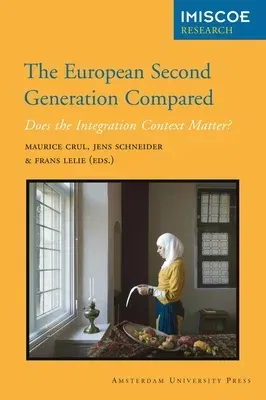Maurice Crul
(Author)The European Second Generation Compared: Does the Integration Context Matter?Paperback, 28 August 2012

Temporarily out of stock
Free Delivery
Cash on Delivery
15 Days
Free Returns
Secure Checkout

Part of Series
IMISCOE Research
Print Length
416 pages
Language
English
Publisher
Amsterdam University Press
Date Published
28 Aug 2012
ISBN-10
9089644431
ISBN-13
9789089644435
Description
Product Details
Book Format:
Paperback
Country of Origin:
US
Date Published:
28 August 2012
Dimensions:
23.37 x
15.49 x
2.54 cm
Genre:
European Union Studies
ISBN-10:
9089644431
ISBN-13:
9789089644435
Language:
English
Location:
Amsterdam
Pages:
416
Publisher:
Series:
Weight:
703.07 gm